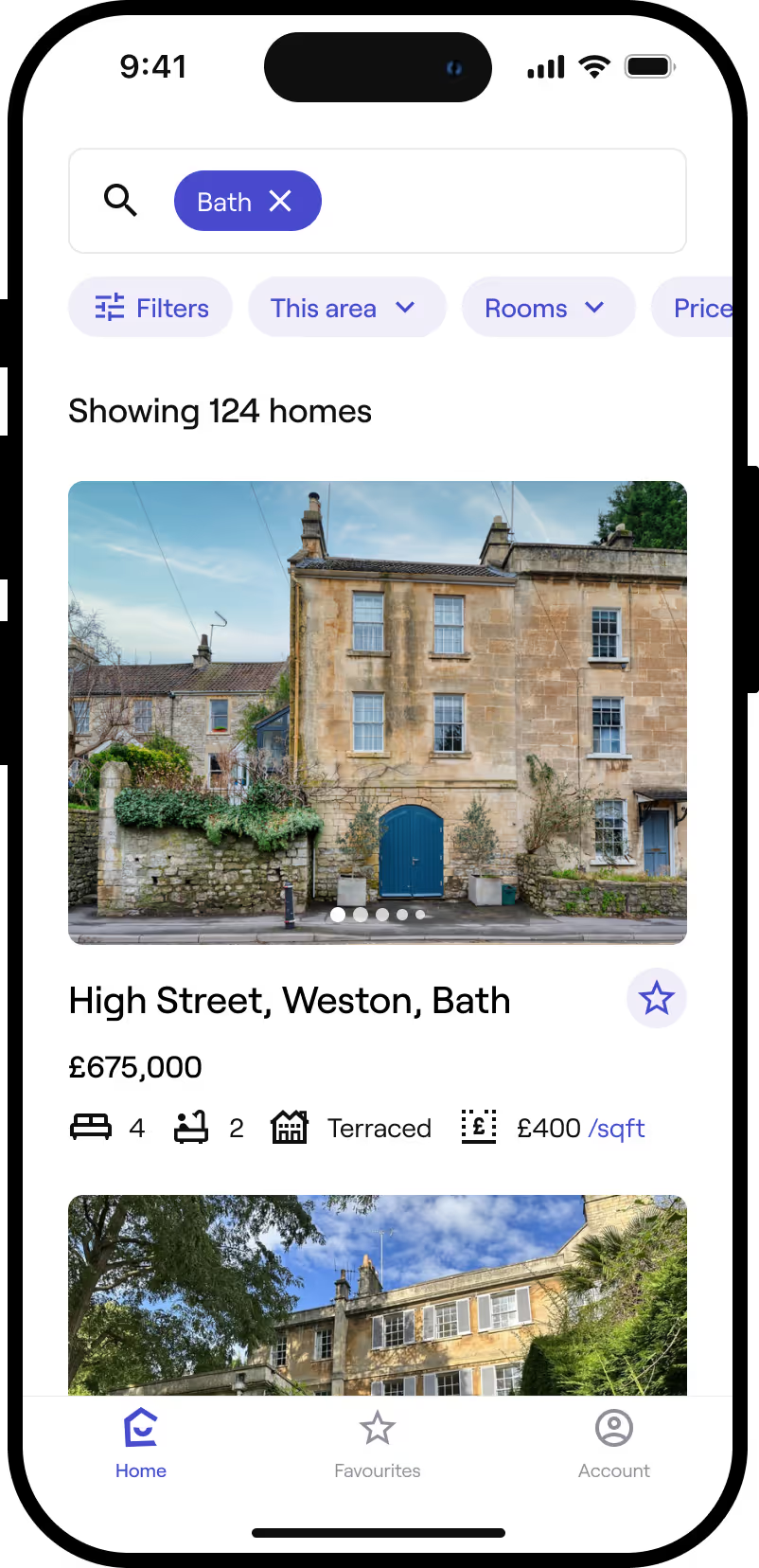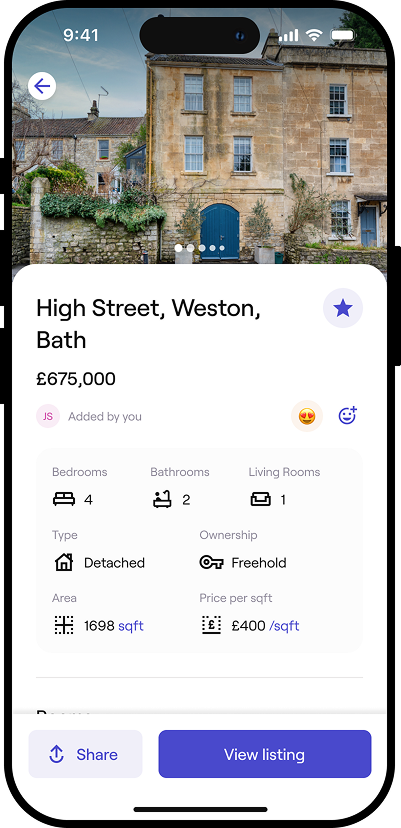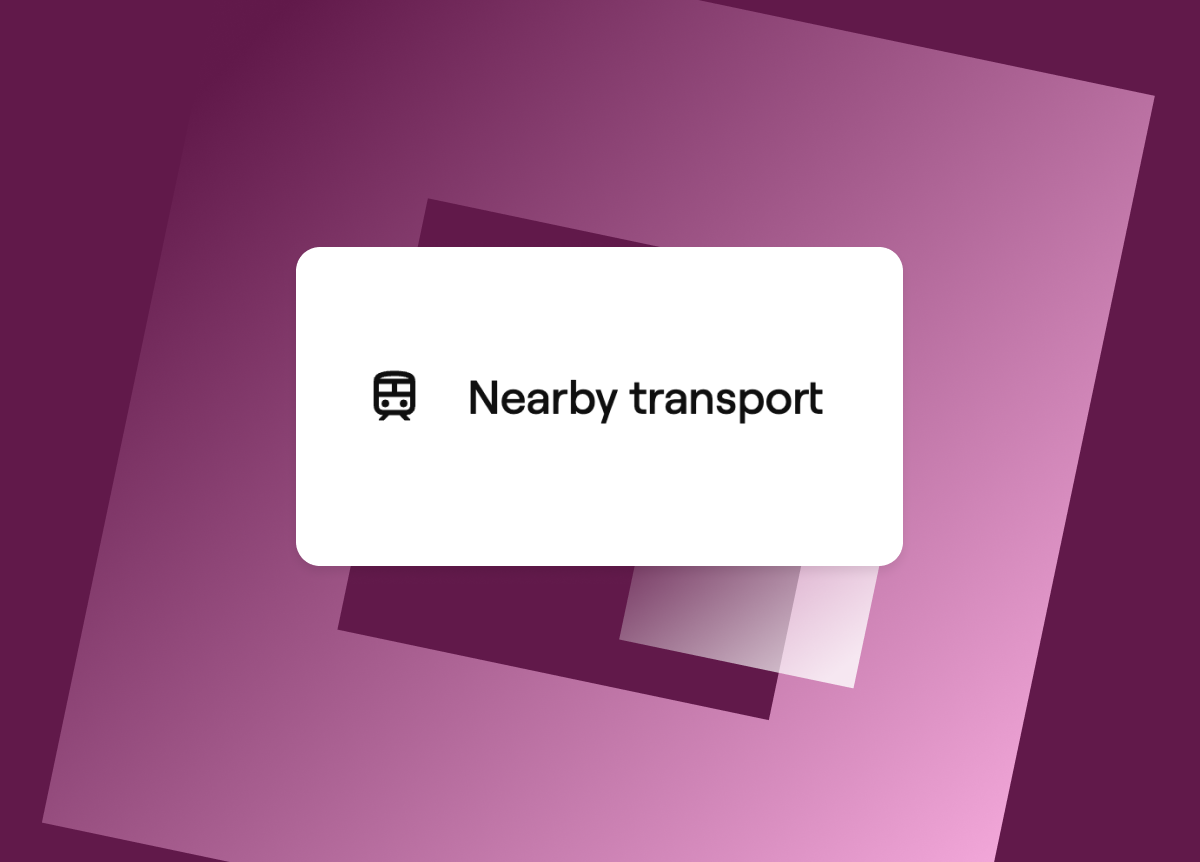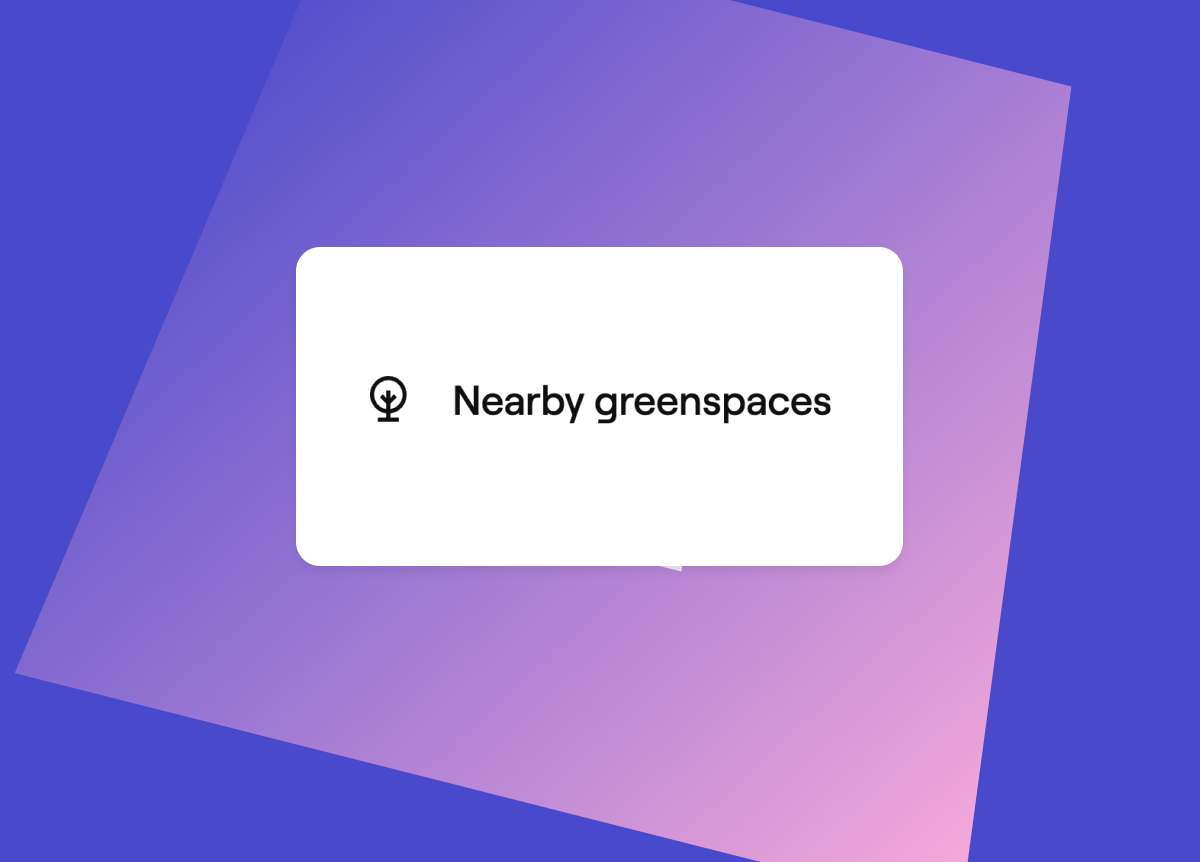What to Ask at a House Viewing, According to a Former Agent
Liv Jacobson is Jitty's resident real estate expert. She was formerly the Head of Sales at The Modern House, one of the UK’s most respected estate agencies, and has a deep understanding of the property market from every angle. Having personally handled the sale of hundreds of homes across London - from first-time buyer flats to complex, architectural one-offs -Liv knows what really happens behind the scenes, how agents think and what buyers often get wrong (or right).
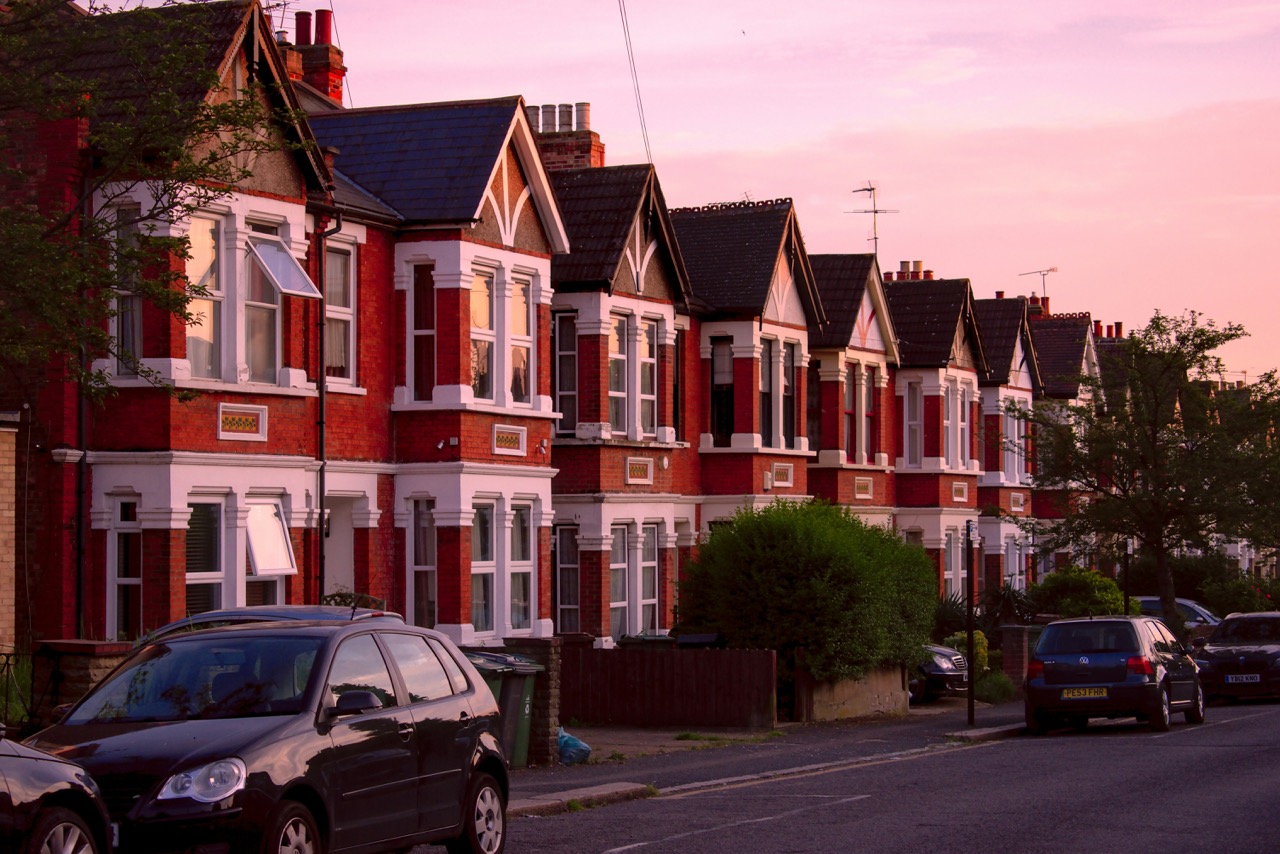
If you’ve booked a house viewing and your plan is to just "see how it feels," you’re winging the biggest financial decision of your life.
I previously worked at The Modern House and I’ve helped people on both the buy and sell-side. This guide covers the most important things to check and ask when viewing a house from somebody with extensive industry experience. I includes everything you should do before and after to give yourself the best chance of landing a home you love (or at least that you don't regret buying). It’s what I would advise a friend or a family member to do if they were buying a home.
1. Are you even in a strong buying position?
If you're not ready to buy, you're not ready to view. Sellers and agents want people who can move quickly and they're wary of people who might waste their time.
In a hot market, some sellers will refuse viewings from buyers without a mortgage in principle. Even now in a cooler one, agents prioritise buyers who seem serious and financially prepared.
A strong position looks like this:
- Mortgage in principle already sorted
- Clarity on your budget and affordability (ideally via a broker)
- Cash buyer or no chain (obviously, this one is easier said than done)
If you haven’t spoken to a broker yet, sort that before your first viewing. It shows you’re not just browsing and it gives the agent a reason to champion you to the seller.
2. What should you research before you show up?
Spend 15 minutes online. It could save you hours of wasted viewings.
Start with Google Street View. Check whether the property matches the listing photos. See what’s next door — a pub, takeaway or school could mean noise, parking issues, or insurance complications.
Check these things before your visit:
- Noise sources: flight paths, rail lines, major roads
- Retail units below flats (can affect mortgage eligibility)
- Local crime stats and school catchments
- Garden orientation (south-facing is most desirable)
3. What should you know about the property itself?
If there have been any extensions or building work, ask if there are up-to-date building registration certificates. Missing documentation can cause delays or legal headaches.
And don’t rock up asking, "how many bedrooms it has". Coming prepared makes you look serious, while coming unprepared can make you look disinterested. That affects how the agent treats you, how they talk about you to the seller and whether you get a callback when something better comes up.
At a minimum, you should:
- Read the full listing — and if it's ex-local, check the % private vs council ownership. This affects mortgageability and potential liabilities.
- Check the floor plan and square footage (and what’s included in it)
- Confirm leasehold vs freehold and ask if there’s a sinking fund
- Ask about: ground rent, lease length, service charges
If any of this is missing from the listing, ask directly. It’s often a sign something’s off.
4. What should you be doing during the viewing?
While you're inside, you're doing two things: inspecting the property and interrogating the agent. This is your one window to uncover issues and gather answers.
What to inspect yourself:
- Look out the windows — at the view and the rooflines. What’s already been extended? What could be? Could a new build go up and block your light?
- Use your phone’s compass to check orientation. North-facing means less light.
- Try the hot tap — surveyors won’t do this, so you want to make sure you have decent heat.
- Check for visible mould (ceilings, sills, bathrooms)
- What’s the outlook from each window?
- Any smell of damp? Fresh paint patches?
- Are the windows in good shape?
- How’s the water pressure?
- Got a basement? Look for signs of rot. Bring a pocket hygrometer if you have one.
- How light or dark is the space?
- If there’s a garden, when does it get sun? Come back later to check.
What to ask the agent during the viewing:
- Any lapsed planning applications nearby?
- Any recent local sales not yet on Land Registry?
- Have any extensions or conversions been done nearby?
- If it’s a flat, has a Section 20 notice been served? Any major works planned?
- How old is the boiler? When was it last serviced? Take a photo.
- When was the roof last replaced or inspected?
- Any issues with leaks, pests, or subsidence?
- Any neighbour disputes?
- Is letting allowed — short or long term?
Also clarify the tenure and any hidden costs:
- Is it leasehold, freehold, or share of freehold? (Flats will always be leasehold or share of freehold. Houses can be leasehold or freehold.)
- Who’s the management company? Look them up — Companies House, Google Reviews, forums.
- How many leaseholders or freeholders are in the building?
- Who owns the freehold?
- How is the building managed if it is owned by multiple freeholders?
- Are there any estate charges? Freehold homes on private developments often come with charges for upkeep of communal areas. This is not necessarily a bad thing, but it’s important to know.
That's a lot of questions!
We know. You're asking all of these questions for two reasons:
- To decide if you want to make an offer
- To understand how much it’s really worth
You don't want to make an offer on something that disappoints you eventually. And you don't want to overpay. Those questions prevent those two consequences.
A specific note on flats
If it’s a flat, go beyond the sales agent. Speak to the lettings team (if there is one) or a neighbour. Lettings teams often know more about how well the building runs day to day. If you hear about disputes, delays, or dodgy management. These are red flags and could mean you should steer clear.
One buyer we supported viewed a flat that seemed great, but when she pushed to find out more discovered it had serious communal issues: roof problems, broken intercom, unpaid service charges. Further digging revealed the building had eight freeholders, which meant no one person could push through changes to fix them. The red flags were there, but only if you asked.
5. Should you go back for a second viewing?
Yes. One visit isn’t enough.
Here’s why second viewings matter:
- Light changes throughout the day
- Street noise might spike at rush hour or school pickup
- Parking could be fine on Sunday and impossible on Wednesday
- The vibe might shift after dark
One couple we worked with liked a listing near a school. They came for a 3:30pm viewing, to see what it was like around school pick-up. Total chaos. School traffic, double parking, nowhere to stop. They ruled it out on the spot.
Even if you can’t get back in at night, at least walk the local streets after dark. Think about your walk home, your commute, your safety. These things matter and you don't want to go into them blind.
6. Why agents matter more than you think
Agents have a reputation. But they’re your best ally if you treat them right.
If an agent likes you, they might:
- Tip you off before a listing goes live
- Push your offer harder to the seller
- Give honest feedback on tricky properties
In competitive situations, the agent may get to decide who they put forward most enthusiastically. If they think you’ll follow through — and not cause drama post-offer — they’ll back you.
Having good relationships with agents can mean the difference between getting the property you love or not.
Final thoughts
Buying a house is part detective work, part job interview. The more prepared you are, the more seriously you’ll be taken.
If you do the research, ask the right questions, and build good relationships, you won’t just avoid bad properties — you’ll find the right ones faster.
Don’t just turn up and see how it feels. Show up like you mean it.
Questions You Might Have
Head down a different street...
Download the Jitty app now
Experience homebuying as it was meant to be.
